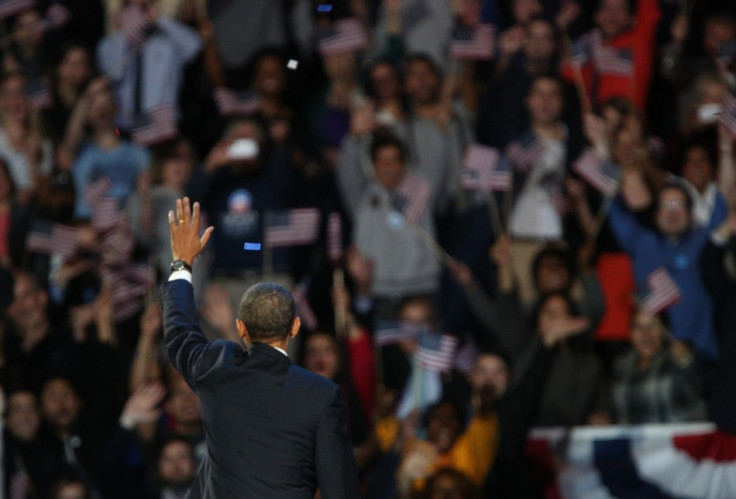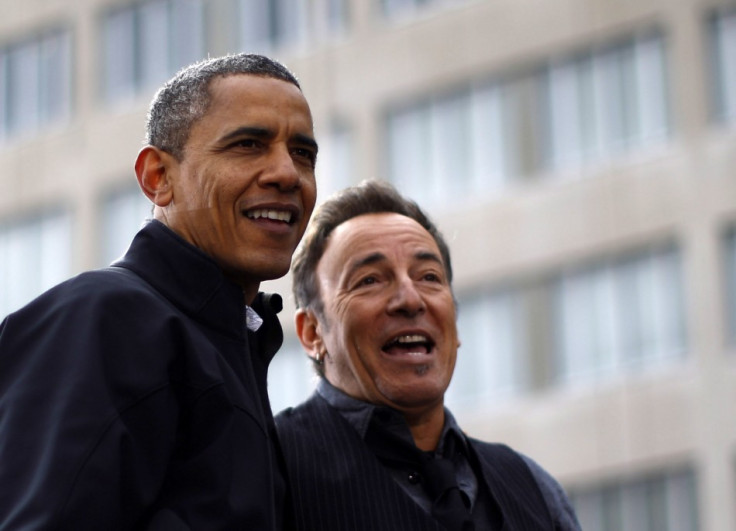Women, Gay, Minorities: The New America - Why Obama Won

The difference is clear: Romney calls Ann "the best choice I've ever made"; Obama calls Michelle "the woman who agreed to marry me." (cit. New Yorker)
The looming prospect of a "fiscal cliff", increasing concern among investors, stock markets slumping: the aftermath of Obama's inspiring re-election has begun to look a bit like a bad New Year's hangover, a relentless climax of bad news turning optimism into reality.
But while Obama's poignant speech still resounds in the world's ears, some aspects of his successful campaign must be put into the right perspective.
Let's focus for a moment on Nevada, which was considered a battleground state given a shrinking local economy still nursing its wounds from the bursting of the housing bubble more than four years ago.
Political observers predicted a race that could go either way, while polls in Reno's traditionally GOP-leaning Washoe County foresaw a landslide Romney victory there.
Eventually, the president won easily in Las Vegas' Clark County and managed to secure Reno with a margin of more than 6,000. A slight margin, for sure, but one which nonetheless reflects a national trend.
A poll by the AP shows that Obama was buoyed by minorities, women and labour unions. Latinos voted for Obama by nearly a 2-to-1 margin, the same stats for women under the age of 30.
Other minorities, notably Asian-Americans, launched a successful voter registration drive through the Asian American labour alliance (APALA) association which added more than 1,000 new voters.
True, economy is a primary concern among all voters - and Americans are not an exception. But about four of 10 think the economy is getting better under Obama's administration.
Exit polls revealed something Obama's campaign manager Jim Messina had predicted for months: the share of votes cast by minorities for Obama jumped to 28 percent in this election.
In the Sun Belt - Virginia, Nevada, and Colorado - the rising minority overwhelmed the whites' vote. It has been calculated that an impressive 80 percent of minorities - including more than nine in 10 African-Americans, seven in 10 Hispanics and three in four Asians - voted for Obama.
Never underestimate female power (and The Boss)

The same is true for women. As our senior business reporter Lianna Brinded pointed out, the power of the female vote, 53 percent of the electorate, was critical in Obama's re-election.
"The Republican Party campaign was hamstrung by a series of controversial statements about women's reproductive rights, as well as opinions on sensitive subjects such as rape, which went down like a lead balloon with female voters," she reported.
Missouri Republican Todd Akin, who alienated the female vote after saying that women had "biological defences against pregnancy in cases of legitimate rape" and Illinois Republican Joe Walsh, who said abortion was never necessary to save a woman's life, were not just a rogue fringe of their party - they epitomised its out-of-touch attitude to female issues.
The Republicans essentially failed to understand, cultivate and ultimately seduce the new "coalition of the ascendant", losing the support of young people, minorities, and college-educated women, while courting instead old, white and male Americans. The GOP's faces, symbols and statements pointed backward, not Forward (Obama's campaign slogan).
A wrinkle-faced Clint Eastwood talking to an empty chair, Romney's infamous "binders full of women" statement, the populist and weak arguments on immigration, abortion, gay rights. All these signs demonstrate the GOP and Romney's inability to intercept the New America.
It may pay off with Tea Party radicals and senior, wealthy whites - Romney won nearly three-fifths of whites, matching the best performance ever among white voters for a Republican candidate - but it just does not work with the real heart of America.
And this is not true only for minorities. Obama was also able to attract working-class whites, the cornerstone of the Democrats' Old Democratic Coalition, to hold the critical battlegrounds of Wisconsin, Iowa and above all Ohio.
It is not a coincidence that in the swing state of the car industry, he won 41 percent of the white vote, slightly better than the 39 percent nationwide.
Again, the Democrat's choice of symbols, statements and faces was hugely successful.
In the last day of campaigning before Election Day, a stirring Bruce Springsteen, the musical incarnation of working-class America, introduced Obama with a moving performance, before hugging him in a long, meaningful embrace to symbolise the marriage of new and old America.
"I cannot imagine not being fired up after listening to Bruce Springsteen," Obama rightly said.
That's why Obama won, despite all the backlash on his failure to technically understand the economy. Of the 94 independent voters sampled in a New York Times survey, 54 said it was more important for a president to have "the willingness to fight for middle-class families" rather than a "technical understanding of the economy."
In the same survey, only 44 percent of voters said that Romney's views were in line with the views of most Americans, while 48 percent said his views were out of touch. "The president's victory was a triumph of vision, not of demographics," the article concludes.
© Copyright IBTimes 2025. All rights reserved.






















